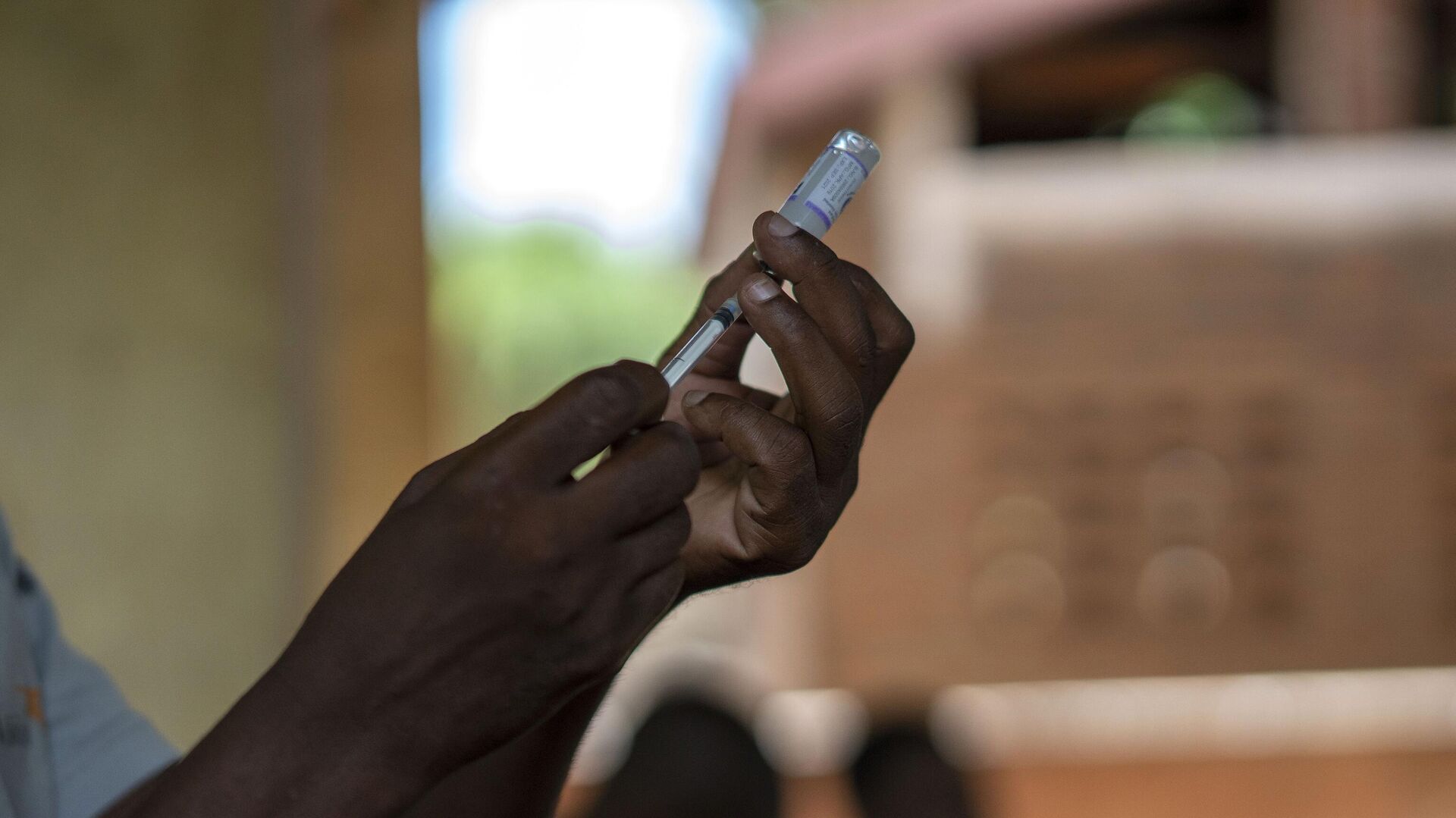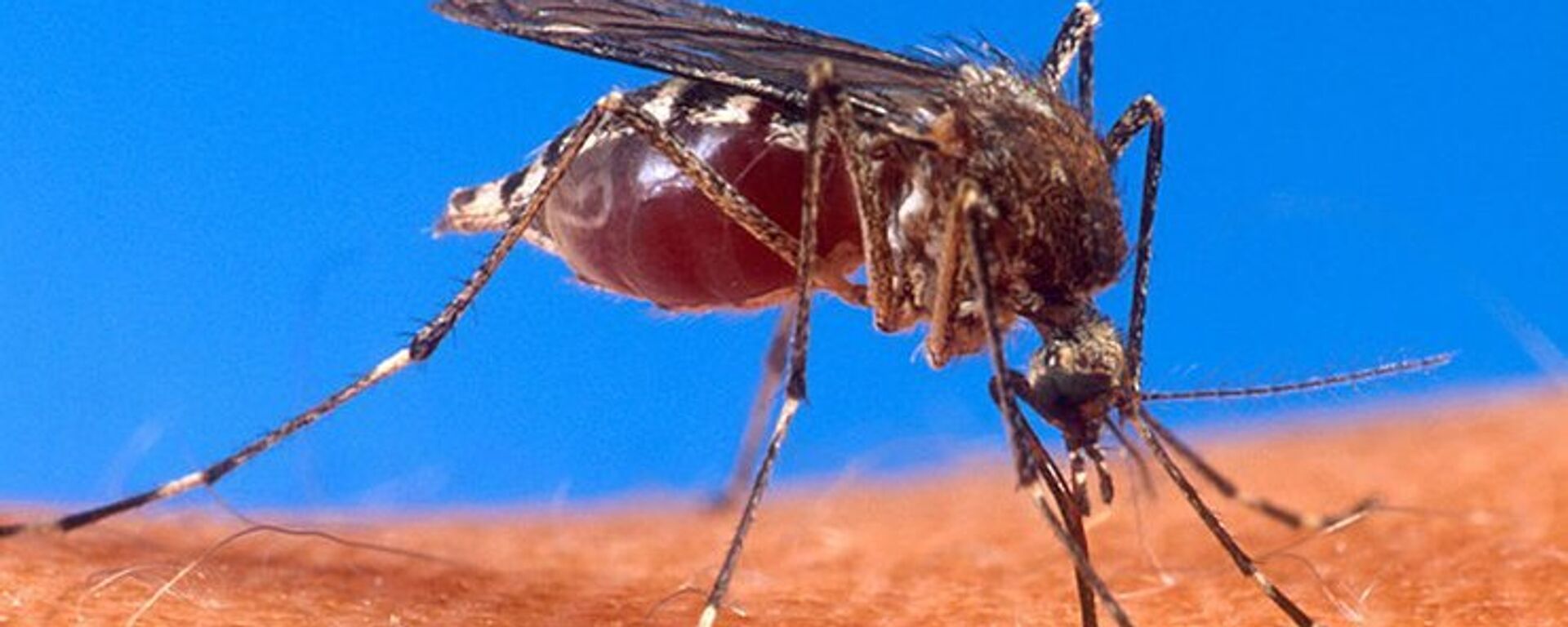https://en.sputniknews.africa/20230422/more-african-nations-set-to-greenlight-new-malaria-vaccine-reports-indicate-1058775409.html
More African Nations Set to Greenlight New Malaria Vaccine, Reports Indicate
More African Nations Set to Greenlight New Malaria Vaccine, Reports Indicate
Sputnik Africa
Apart from Nigeria and Ghana, several other African nations are planning to approve the R21 malaria vaccine with 20 million doses available for purchase this year, media has reported.
2023-04-22T11:58+0200
2023-04-22T11:58+0200
2023-04-22T11:58+0200
sub-saharan africa
west africa
ghana
nigeria
vaccine
world health organization (who)
malaria
https://cdn1.img.sputniknews.africa/img/07e7/04/16/1058775607_0:0:3069:1726_1920x0_80_0_0_5094f6fe515645596b863f60737c62d4.jpg
Several other African nations are planning to approve the R21 malaria vaccine which has 20 million doses available for purchase this year, media has reported citing a World Health Organization official and the shot’s manufacturer. During a high-level meeting, Mary Hamel, WHO's malaria vaccine implementation head, stated that about ten African countries are currently reviewing trial data to evaluate the shot, and others are expected to approve it in the near future apart from Ghana and Nigeria.Noting that the countries' regulatory authorities are examining the data, she didn't provide any information on which African state will be next or when the vaccine will be approved by a third nation. Hamel only mentioned that it could happen in the coming weeks.The vaccine was developed by Oxford University scientists and manufactured by the Serum Institute of India. The latter's Chief Executive Adar Poonawalla told media that his company is going to produce 20 million doses of the shot over the next two months.According to Poonawalla, this amount would be enough to vaccinate five million children with the shot's four-dose regimen. It was also noted that the doses are expected to be available in time for the upcoming malaria season, which usually starts in June depending.On April 13, Ghana became the first state to greenlight public usage of the R21 malaria vaccine, followed by Nigeria later in the month. Both nations approved the shot for use on children 5-36 months old. This age group, according to the university's statement, is at the highest risk of death from the mosquito-carried disease.It is expected that the vaccine will enable African countries to effectively combat malaria, which is widely spread across the continent. According to the WHO, Africa carries the highest share of "the global malaria burden."In 2021, the continent was home to approximately 95% of all malaria cases and 96% of deaths. It was noted that four African nations - Nigeria, the Democratic Republic of the Congo, Tanzania and Niger - accounted for more than a half of all malaria deaths worldwide. In its latest World malaria report, the organization stated that in 2021, there were 247 million cases of malaria, while the number of malaria deaths globally stood at 619 000.
https://en.sputniknews.africa/20230413/malaria-vaccine-gets-green-light-for-use-in-ghana-1058573391.html
west africa
ghana
nigeria
Sputnik Africa
feedback@sputniknews.com
+74956456601
MIA „Rossiya Segodnya“
2023
News
en_EN
Sputnik Africa
feedback@sputniknews.com
+74956456601
MIA „Rossiya Segodnya“
Sputnik Africa
feedback@sputniknews.com
+74956456601
MIA „Rossiya Segodnya“
nigeria, ghana, west africa, world health organization , malaria, vaccine, trials, malaria deaths
nigeria, ghana, west africa, world health organization , malaria, vaccine, trials, malaria deaths
More African Nations Set to Greenlight New Malaria Vaccine, Reports Indicate
Ghana became the first country in the world to approve new malaria inoculation R21/Matrix-M earlier this month. The vaccine is described by developers as a "world-changer." This week, Nigeria joined Ghana in supporting the experimental vaccine.
Several other African nations are planning to approve the R21 malaria vaccine which has 20 million doses available for purchase this year, media has reported citing a World Health Organization official and the shot’s manufacturer.
During a high-level meeting, Mary Hamel, WHO's malaria vaccine implementation head, stated that about ten African countries are currently reviewing trial data to evaluate the shot, and others are expected to approve it in the near future apart from Ghana and Nigeria.
"We expect many more countries to come through," she said, adding: "They are sovereign countries that can make their own decisions for their vaccines."
Noting that the countries' regulatory authorities are examining the data, she didn't provide any information on which African state will be next or when the vaccine will be approved by a third nation. Hamel only mentioned that it could happen in the coming weeks.
The vaccine was developed by Oxford University scientists and manufactured by the Serum Institute of India. The latter's Chief Executive Adar Poonawalla told media that his company is going to produce 20 million doses of the shot over the next two months.
“We are committed to making the R21 vaccine available to people who need it most,” Poonawalla said.
According to Poonawalla, this amount would be enough to vaccinate five million children with the shot's four-dose regimen. It was also noted that the doses are expected to be available in time for the upcoming malaria season, which usually starts in June depending.
On April 13, Ghana became the first state
to greenlight public usage of the R21 malaria vaccine, followed by Nigeria later in the month. Both nations approved the shot for use on children 5-36 months old. This age group, according to the university's statement, is at the highest risk of death from the mosquito-carried disease.
The move was dubbed by media unusual since it comes prior to the publication of the vaccine’s final stage trial data, and before the World Health Organization's approval. Detailed data on large-scale trials is yet to be published, but it is already known that the vaccine is the first of its kind to exceed the 75% efficacy rate set by the WHO.
It is expected that the vaccine will enable African countries to effectively combat malaria, which is widely spread across the continent. According to
the WHO, Africa carries the highest share of "the global malaria burden."
In 2021, the continent was home to approximately 95% of all malaria cases and 96% of deaths. It was noted that four African nations - Nigeria, the Democratic Republic of the Congo, Tanzania and Niger - accounted for more than a half of all malaria deaths worldwide.
In its latest
World malaria report, the organization stated that in 2021, there were 247 million cases of malaria, while the number of malaria deaths globally stood at 619 000.


